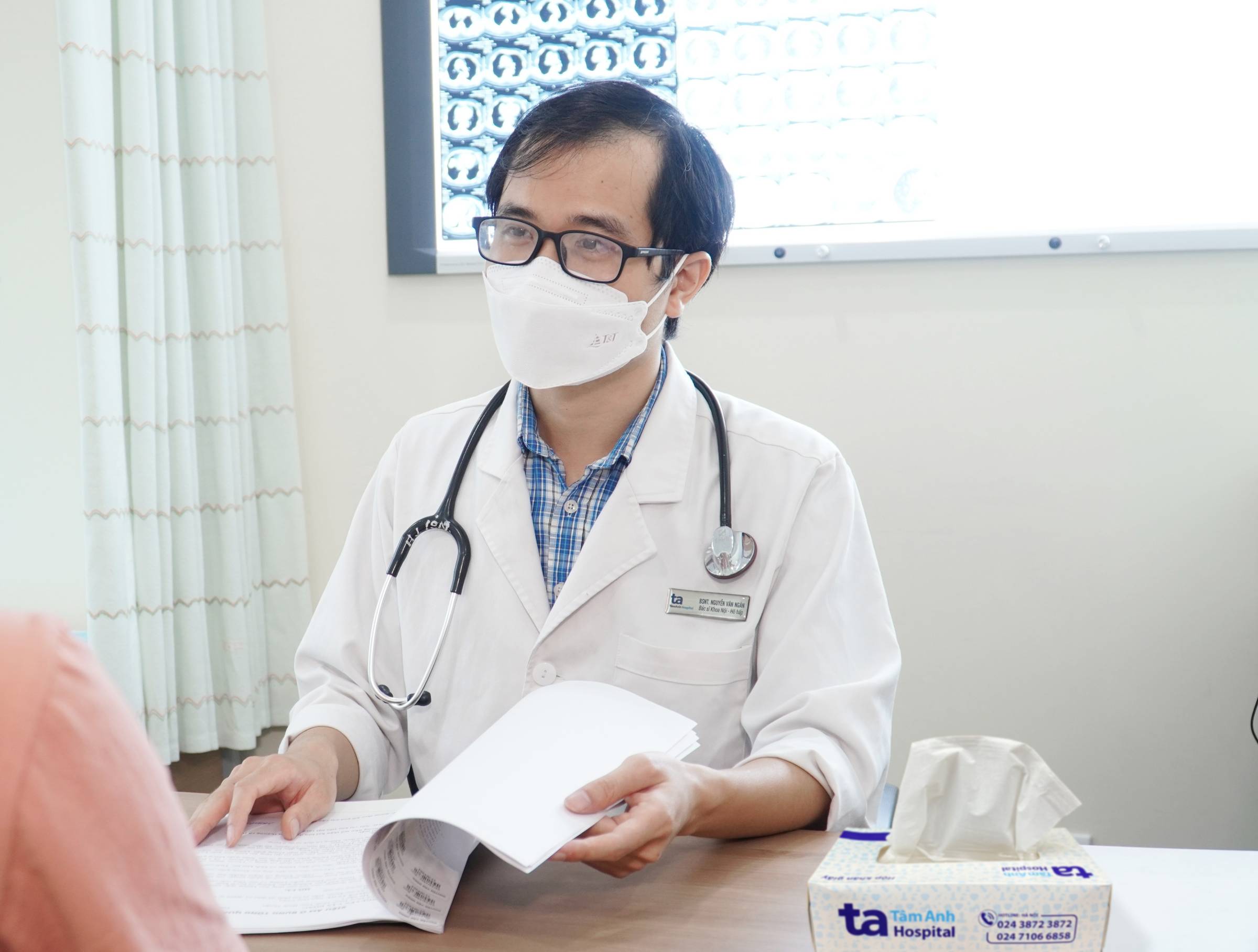Pneumonia is an infection of the lung tissue, including the alveoli, alveolar sacs, alveolar ducts, interstitial tissue, and terminal bronchioles. Causes can include influenza viruses A and B, RSV, adenovirus, and bacteria. The disease often progresses rapidly and can cause respiratory failure. Without prompt and proper treatment, it can be fatal.
"Prolonged hot weather increases the risk of respiratory illnesses, including pneumonia," said Dr. Nguyen Van Ngan, from the Respiratory Department of Tam Anh General Hospital, Hanoi. He explained that high temperatures impair the body's ability to regulate its temperature, disrupting immune function and affecting the natural protective barrier of the respiratory tract. Under the impact of heat, the respiratory mucosa can become dry, affecting the protective mucus layer. This creates an opportunity for bacteria and viruses to enter and cause inflammation. Incorrect use of air conditioning during hot weather, such as setting the temperature too low or not regularly cleaning filters, also contributes to the increased risk of lower respiratory tract infections.
 |
Dr. Ngan consults with a patient. Photo: Tam Anh General Hospital |
Dr. Ngan consults with a patient. Photo: Tam Anh General Hospital
Hot weather increases air pollutants like fine dust, which irritates the respiratory tract. These microscopic particles penetrate deep into the alveoli, triggering inflammatory responses and exacerbating respiratory diseases, especially in people with pre-existing conditions like chronic obstructive pulmonary disease (COPD) or asthma. The combination of high temperatures, air pollution, and a weakened immune system increases the risk of pneumonia and causes the disease to progress rapidly and severely.
According to Dr. Ngan, the elderly, young children, and those with underlying chronic lung diseases such as COPD and asthma have weakened or underdeveloped immune systems, making them highly susceptible to viral and bacterial infections. People who regularly work outdoors, in polluted environments, or are exposed to smoke, dust, chemicals, or tobacco smoke are also at risk if they don't take preventive measures.
To reduce the risk of pneumonia during hot weather, Dr. Ngan recommends limiting outdoor activities between 10 a.m. and 4 p.m. when the sun is strongest. He also advises wearing a mask, hat, and long-sleeved clothing. Maintaining a clean living environment, keeping the air conditioning temperature between 26 and 28 degrees Celsius, and avoiding sudden temperature changes when entering or leaving air-conditioned spaces are also important. He further suggests drinking 1.5 to 2 liters of water per day, consuming plenty of green vegetables and fruits rich in vitamin C, such as oranges, lemons, and grapefruits. Getting adequate rest to boost the body's resistance and rinsing the nose and throat daily with saline solution are also beneficial. Vaccinations against influenza, pneumococcus, and Covid-19 are crucial for reducing the risk of pneumonia.
The initial symptoms of pneumonia, such as coughing, mild fever, and fatigue, are easily mistaken for the common cold. If left untreated, the disease can become severe.
Thu Giang
| Readers can submit questions about respiratory diseases here for doctors to answer. |












